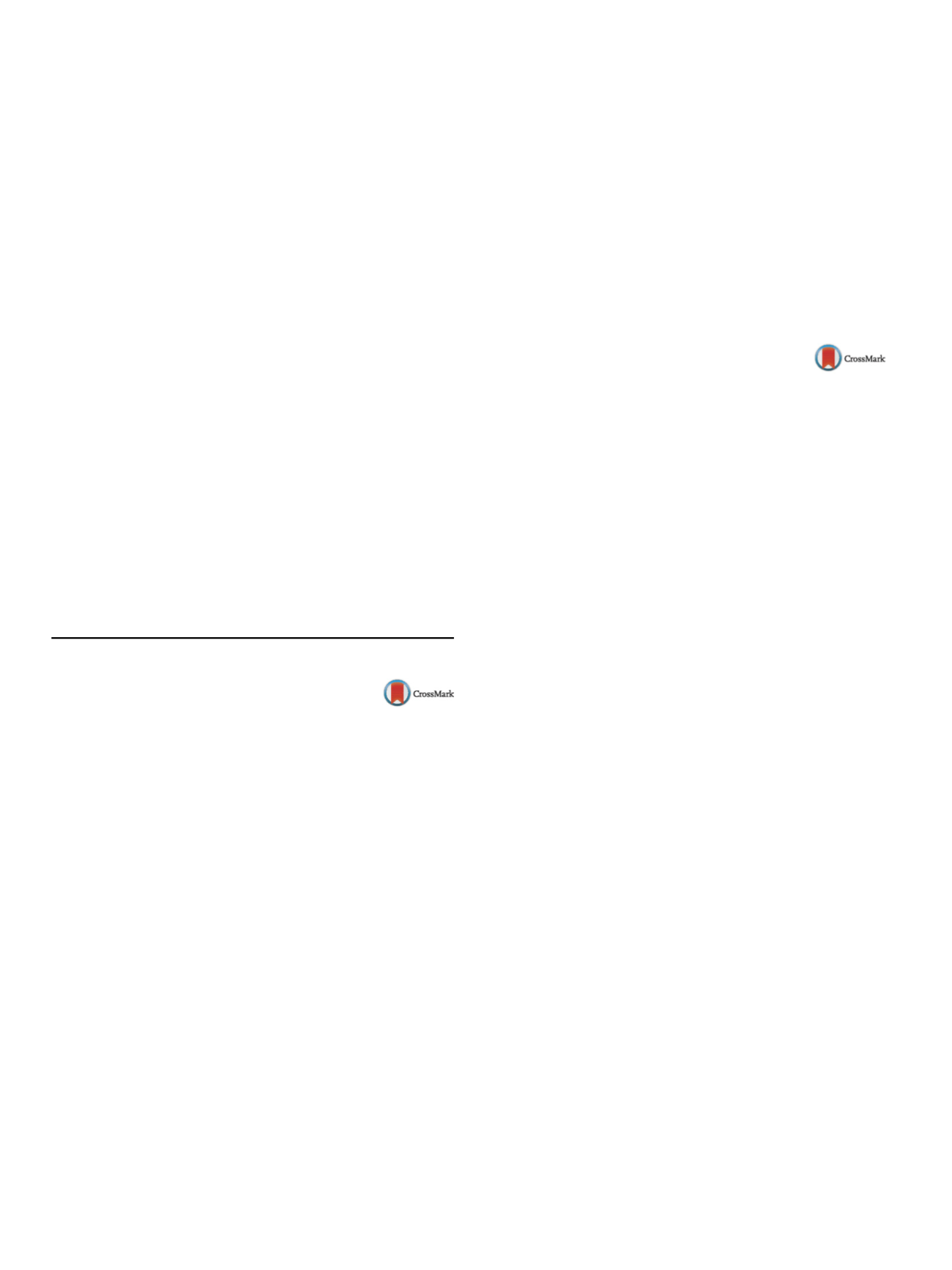

S546
25th European Congress of Psychiatry / European Psychiatry 41S (2017) S521–S582
tools, ultimately increasing patients’ quality-of-life and autonomy
at home.
Methods
ICT4Life proposes an innovative platform for inte-
grated care by the use of sensor-based analytics for human
behaviour. Novel ICT services are used to determine the relation
between cognitive decline, related psychopathological symptoms
and the quality-of-life of the patients, and to assess how these
affect patients’ and caregivers’ daily living. ICT4Life platform uses
advanced sensor-based analytics; to maximize elderly empower-
ment and self-care abilities thanks to a properly designed and
reconfigurable recommendation system that will be able to exploit
user-generated data; and to improve decision-making processes
in care professionals’ daily activities. All solutions are developed
following a user-centred methodology and tested in real-life sce-
narios.
Results
The study design and the preliminary results of the
ICT4Life project are presented on the poster.
Conclusion
ICT4Life programme develops a solution for individ-
uals with early stage cognitive impairment that will permit doctors
and caregivers to extract useful information about patients, while
contributing in a user-friendly way to extending their indepen-
dence.
Disclosure of interest
COI: This project has received funding from
the European Union’s Horizon 2020 research and innovation pro-
gramme under grant agreement N
◦
690090. Tamas Tenyi and
Sandor Fekete are supported by the National Brain Research Pro-
gram Grant N
◦
NAP KTIA NAP-A-II/12.
http://dx.doi.org/10.1016/j.eurpsy.2017.01.765e-Poster Viewing: Eating Disorders
EV0436
Previous and posterior
psychopharmacological treatment in
bariatric surgery patients
M. Angelats
1 ,∗
, P . Laia
1 , R.Elena
1 , M.Laura
1 , E. Iciar
1 ,B. Adinson
2 , P. Lucía
3 , B. Elena
3 , P. Víctor
1 , S. Purificación
11
Instituto de Neuropsiquiatría y Adicciones INAD, Parc de Salut Mar,
Psiquiatría, Barcelona, Spain
2
Fellow of the Royal College of Physicians of Canada, Psychiatry,
Quebec, Canada
3
Instituto de Neuropsiquiatría y Adicciones INAD, Parc de Salut Mar,
Psicología, Barcelona, Spain
∗
Corresponding author.
Introduction
Bariatric surgery is an effective treatment for obe-
sity. It has been demonstrated that it improves the prognosis of
vascular risk factors. However, the long term effect of surgery on
psychiatric pathology, as depression, and the treatment adjustment
needed is not clear.
Aim
To describe the previous and posterior psychopharmacolo-
gical treatment of patients operated of bariatric surgery in Hospital
del Mar.
Material andmethods
We used a database of 292 bariatric surgery
patients who have been operated in Hospital del Mar from Jan-
uary 2010 to November 2015. In this database, sociodemographic
information, psychiatric antecedents, and anterior and posterior
treatments among other data are included. We have made a
descriptive analysis about more used treatments and their evolu-
tion.
Results
In the sample, 27.1% of patients started with some psy-
chiatric treatment the months before the bariatric surgery (16.4%
had already a previous treatment prescribed). The medications the
most frequently started before the surgery were selective sero-
tonin reuptake inhibitors (SSRI, 11%), secondwere benzodiazepines
and third a combination of the two previous treatments. Among
antidepressants, Fluoxetine was the most prescribed (45.5%). Six
months after surgery, 72.9% of patients were not taking any
treatment.
Conclusion
The large variety of psychiatric drugs used in our sam-
ple indicates that clearer guidelines are needed about the most
appropriated treatments for those patients. Further studies on the
impact of this surgery on pathologies and their psychopharmaco-
logical treatments are needed.
Disclosure of interest
The authors have not supplied their decla-
ration of competing interest.
http://dx.doi.org/10.1016/j.eurpsy.2017.01.766EV0437
A French psychoeducational
audio-visual tool for adult patients
with eating disorders
L. Avenet
1 , 2 , 3, D. Ringuenet
4 , 5 , 6, C. Vindreau
7 , 8, J. Mallet
1 , 2 , 3 , 9 ,∗
,
P.L. Avenet
10 , 11, P. Gorwood
8 , 9 , 12, C. Dubertret
1 , 2 , 3 , 91
AP–HP, Department of Psychiatry, Louis-Mourier Hospital,
Colombes, France
2
University Paris 7 Denis Diderot, Faculty of Medicine, Paris, France
3
Department of Psychiatry, Colombes, France
4
Department of Psychiatry and Addictology, Eating disorders unit,
AP–HP, hôpital Paul-Brousse, Paris, France
5
Paris Sud University, Villejuif, France
6
Department of Psychiatry and Addictology, Villejuif, France
7
CMME, Sainte-Anne Hospital, Paris Descartes University, Paris,
France
8
Department of Psychiatry, Paris, France
9
Inserm U894, Center for Psychiatry and Neurosciences, 2 ter, rue
d’Alésia, 75014 Paris, France
10
Médecine d’urgence, CHI Poissy–Saint-Germain, Poissy, France
11
Department of Emergency, Poissy, France
12
CMME, Sainte-Anne Hospital, Paris, France
∗
Corresponding author.
Introduction
Eating disorders are pathologies with potentially
serious psychic and somatic consequences, and high mortality.
Lifetime prevalence in adults is about 0.6% for anorexia nervosa,
1% for bulimia, and 3% for binge eating disorder. However, the
prognosis is improved if a suitable care is quickly established.
Caregivers are often highly involved and helpless in facing such
diseases. They often express a significant psychological distress.
We must contribute to provide them answers, to strengthen their
key role as a resource and support for the patient. It is found
that carers themselves are poorly trained in screening, diagnosing
and supporting eating disorders. There are effective therapeu-
tic approaches, such as psychoeducation, to improve therapeutic
alliance.
Objectives/aims
This work aims to realize a French psychoedu-
cational audio-visual tool for patients with eating disorders, their
caregivers, and professional carers.
Methods
We made an extensive review of literature (focus on
the international practice guidelines, existing psychoeducational
tools), and several consensus meetings. We decided of original
directions to drive the psychoeducational approach of the movies,
taking into account previous findings.
Results
This tool includes three movies approaching the symp-
toms and the choice of treatment setting, based on the disease
course and the care’s goals. They may be broadcasted on a national
level through professional networks and associations involved in
the treatment of eating disorders.
Conclusion
This work improves the knowledge of eating dis-
orders in carers, patients and their families. The relevance and
effectiveness of this tool on the course of the disease has to be
further evaluated.


















